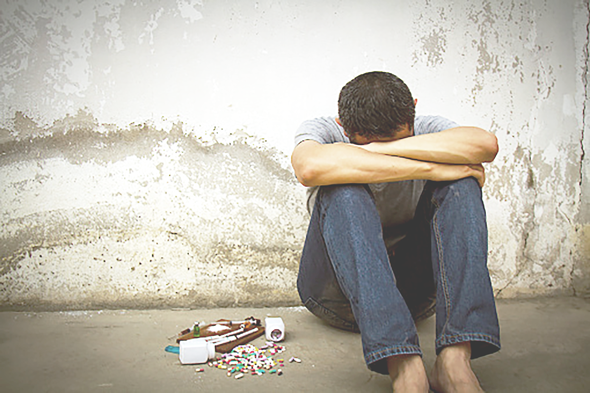
There are two brief sections in David Brooks’ provocative book “The Second Mountain” (New York: Random House, 2019, pp. 346) that I found deeply disturbing and also challenging. They have led me to examine my life as a priest and as a professor.
The titles of the sections are “The Loneliness Crisis” and “The Crisis of Meaning.” Brooks offers some startling statistics in the section on loneliness. Thirty-five percent of Americans are chronically lonely. Since 1999 the suicide rate in the United States has risen by 30 percent. Between 2006 and 2016 the suicide rate for those ages between 10 and 17 rose by 70 percent.
About 45,000 Americans kill themselves every year. Noting that the lifespan of the average American had declined for the third consecutive year, Brooks writes the following:
“This is an absolutely stunning trend. In affluent cohesive societies, life spans get gradually longer as a matter of course. The last time the American life span contracted for this length of time was 1915 to 1918, when the country was enduring a world war and a flu pandemic that killed 675,000 Americans. The reason American lives are shorter today is the increase in the so-called deaths of despair — suicide, drug overdose, liver problems, and so on. And those in turn are caused by the social isolation that is all around us.” (pp. 32-33)
The picture that Brooks paints as a crisis of meaning is as upsetting as the one he paints as a crisis of loneliness.
Suggesting that many people have lost a sense of purpose in their lives, he writes the following:
“When you take away a common moral order and tell everybody to find their own definition of the mystery of life, most people will come up empty. They will not have a compelling story that explains the meaning of their life in those moments when life gets hard …
“Many people have lost faith in the great causes and institutions that earlier generations relied on to give life a sense of purpose and meaning. They have lost faith in faith. Actual church attendance has declined by almost half since the early 1960s.” (p.34)
Brooks thinks that many feel they are not part of some larger story that they can put their faith in and to which they can dedicate their lives. I agree with him.
How I wish that there was some simple solution to these two crises, but I don’t think there is. That does not mean that nothing can be done. I believe that becoming aware of the two crises is a giant step in the right direction. Brooks’ statement “they have lost faith in faith” haunts me. I am already thinking of what I can do in my philosophy classes at St. John’s University and at parish Sunday Masses to confront these crises.
Every person’s life is an exciting adventure. Everyone is involved in a love story, and that story is enormously exciting. How can I help students and parishioners to see that?
In my philosophy classes at St. John’s, I frequently emphasize to the students that our search for meaning is not some unimportant, irrelevant academic activity. I stress what people believe is the meaning of their lives enormously influences how they live.
In some courses, I stress that what we are trying to do in the course is answer as deeply and truthfully as we can two questions: “Who am I?” and “Who are we?” I point out early in the course that we are going to spend an entire semester trying to answer those two questions. How we answer them can influence how we choose to live, how we spend our time, what the priorities are going to be in our lives.
I suspect that in the future, in both my courses and in the Sunday liturgies, I will mention some of the problems that Brooks lists. Reading most of them, I was shocked but also motivated to think about what I can do as a priest and professor to combat the two crises. I will try to encourage both students and parishioners that, while no one person can solve these two crises, everyone can do something. No resolution or action is too small.
I believe deeply that each one of us has a vocation to help others. No individual can do everything, but everyone can do something. I am determined to improve my teaching at the University and to be a better celebrant at a Eucharistic liturgy.
If I do those two activities better, will I change the world? I profoundly believe that my actions will make a difference in the lives of others. And also in my own life!
Father Lauder is a philosophy professor at St. John’s University, Jamaica. He presents two 15-minute talks from his lecture series on the Catholic Novel, every Tuesday at 9 p.m. on NET-TV.
